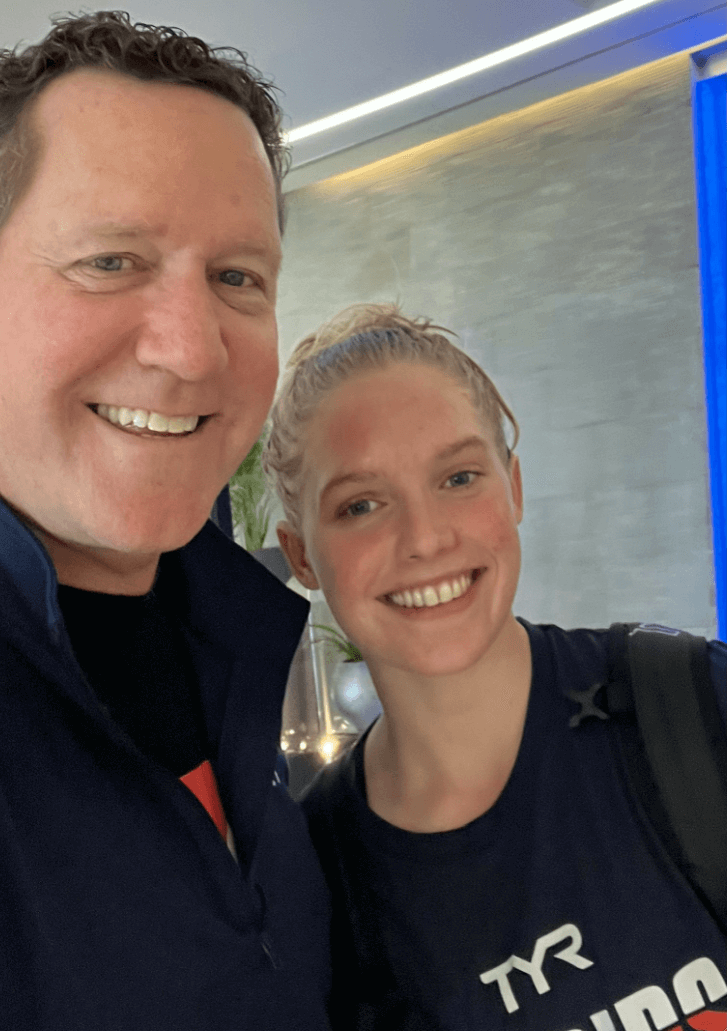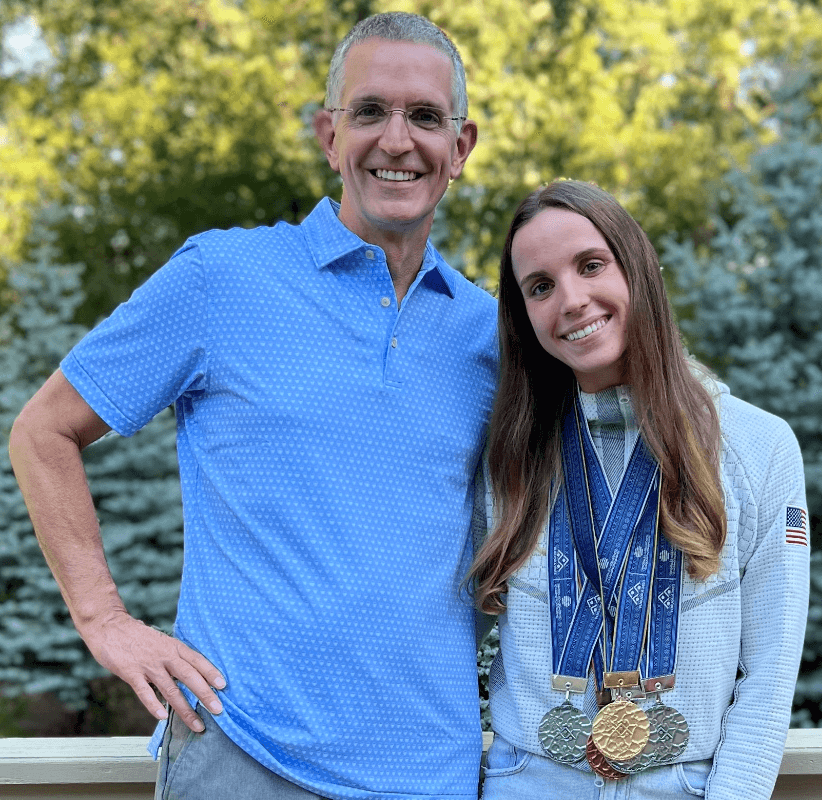Junior Swimmer: Advice for Swim Parents From Those Who’ve Been There

Junior Swimmer: Advice for Swim Parents From Those Who’ve Been There
For generations, athletes in the sport of swimming have had the opportunity to learn from one another. Maybe they picked up technical tips from a teammate, or followed in the path of an individual who was a team leader. Meanwhile, coaches have also benefited from the guidance of mentors. From how to craft training plans to interacting with athletes, coaches have long passed along their tricks of the trade.
But what about parents?
Moms and dads—from the introductory ranks to the elite level—play key roles, too. Of course, they serve as chauffeurs and laundromats. They also supply critical support, ranging from cheerleading to providing a shoulder for tears. Swimming World recently asked a handful of USA national team parents—who have seen it all—to share their insights with fellow mothers and fathers in the sport.
MARK CURZAN (Father of Claire Curzan)

Courtesy: Mark Curzan
A key is to make sure your child is having fun. A fast swimmer is a happy swimmer. Parents need to be encouraging and make sure their kid is enjoying what they are doing. It’s also important not to compare your child to others. Everyone is an individual. Give them what they need. If they’ve been through a tough meet, give them support. If they did a great job, give them support. And be sure to pay attention to their mental health. Overall, just be there for your kid.
I believe it is important to be involved and aware of what is happening. The coaching relationship is a very important one. We’ve been very fortunate to have had great rapport with coaches. My role was to be an encourager. I didn’t want to be the coach…but it’s important to have communication when it is necessary.
KATY MURPHY (Mother of Ryan Murphy)
Swimming is a unique sport. It is very individual, and the clock defines improvement. While swimming can be grueling, it is also extremely gratifying. Parents should encourage young swimmers to have fun with teammates, while also being respectful and attentive to the coaches. Everyone has the ability to succeed in swimming in some capacity, whether as a leader, a supportive teammate, a great friend, a cheerleader or a point scorer.
My advice to parents is to love your child unconditionally. Be involved, but not over-involved. Advocate for your child when necessary, remembering that you know your child better than anyone. Support the coaches and the program. Volunteer. Cheer for all the swimmers. Be a team player. Remember that your child is not a swimmer. He or she is a person who swims.
PAUL SMITH (Father of Regan Smith)

Courtesy: Paul Smith
Please don’t live vicariously through your young athlete. Focus on enjoying what they accomplish rather than making your desires for their success important. It’s easy to look back at your life when you were their age and see the mistakes you may have made and want to “save them” from making similar “bad” decisions. It can lead to pressure whether you intend it to or not.
The “anything-worth-doing-is-worth-doing-right” mantra can be used to browbeat young athletes. I see parents using this philosophy to push kids into attending an extra practice each week: For example, pushing four practices a week when they are only 8-10 years old instead of practicing three times a week and taking that other day for something else. Unfortunately, it often leads to burnout and the feeling of “missing out” on something.
Getting emotionally aggressive with the coaching staff is a disastrous move. You make yourself “that parent” and ultimately end up hurting your child. If you have issues to discuss, first look squarely in the mirror and be certain your perspective is accurate. Try hard to give coaches the benefit of the doubt. And almost always take 24 hours to calm down if you are upset about a particular incident. Calming the raw emotion from a coach discussion will likely pay dividends.
D.A. FRANKLIN (Mother of Missy Franklin)

The Franklin Family
Dick and I encouraged Missy to attempt any sport that she wanted to try. We usually arranged for her to have a couple of practices before she committed to the team and coach. Even as a 5-year-old, she understood that commitment meant to attend practices and games for one full season. We always held Missy accountable and responsible for her sport. As she got older, she became quite independent in managing issues that came up. Of course, we were always there to support her and be a sounding board.
Whatever sport she played, we believed strongly that the coach did the coaching and we parents did the parenting. Missy and her coaches understood that I had a parent “trump card.” I used this as needed for matters involving her health or schoolwork, but not often.
Missy has always said that a happy swimmer is a fast swimmer. I truly believe this. Balance is an important word. There is more to life than swimming. She made her choices thoughtfully. If her friends were having a sleepover party, instead of missing it, she would often go for part of it, have a blast and have me pick her up at 10 p.m. Even for her senior prom, she left for morning practice and returned to the party to cook breakfast for everyone. Again, these were choices she made going back to accountability and responsibility for her sport.




It’s 100%correct correct